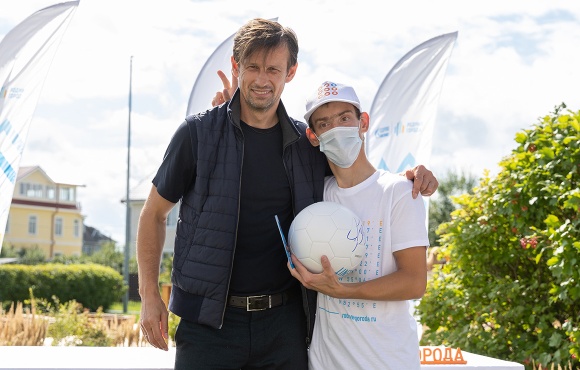The open space is a year-round playground for children to enjoy while rehabbing and the natural materials that make up the sensory garden will help them relax, feel comfortable and assist their communication. The therapeutic effect comes through tactile interaction with natural surfaces, materials and plants, and the children will be able to walk barefoot on different types of sand, pebbles and bark, as well as draw in the natural materials available. There's also a specially built "insect hotel" for those visiting the garden to watch and learn from.
This complex installation helps create a positive emotional experience for the young people living at the orphanage and will assist their education, treatments and rehabilitation. The orphanage staff will also receive training on how to get the most from the sensory garden. The project was designed jointly by the Garden Therapy Foundation, the orphanage itself and the Gazprom Neft volunteers.
Gazprom Neft have been supporting the orphanage since 2015 and have overseen projects including area clean-ups, excursions away from the orphanage, New Year's show and sports days.
Alexander Dybal, member of the Gazprom Neft Management Board:
“This is not the first time that the company's employees have created such a project in their free time. As an organisation we support positive social initiatives and this project in St. Petersburg is indeed very special. Every square meter out of the two hundred there will help those with special needs. We hope that the extensive work we have put into this scheme will help make ecotherapy a model tool for rehabilitation throughout Russia."
Sergei Semak, Zenit manager:
“On the opening day of the sensory garden, we heard people say how they cared about the issues seen here, and this is just a coincidence or words. It is thanks to the people involved here, that projects with a soul are born, this is an initiative were people have taken in part in from the heart and worked with their own hands, this makes the quality of the work done here today much more valuable and special."

